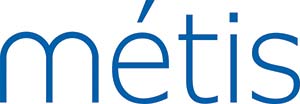


Your Risk of Breast Cancer and the Importance of Genetic Testing

Risk evaluation:
We provide risk assessment for those who have an increased risk of breast and ovarian cancer. You will be given an individualized care plan that includes recommendations for regular screening and risk reduction including medical and surgical options.
How can I determine if I am at high risk?
1. Do you have a family or personal history of any of the following:
Yes or No
• Breast Cancer before age 50?
• Breast cancer in two or more close relatives*?
• Breast cancer in male relative?
• Breast cancer in both breasts or twice in the same breast?
• Breast cancer and Ashkenazi, or Eastern European Jewish, ancestry?
• Ovarian cancer at any age?
2. Do you have a family member who has a known mutation in BRCA1, BRCA2 or another breast cancer susceptibility gene? Yes or No
3. Do you have a BRCA1 or BRCA2 gene mutation? Yes or No
4. Do you have a history of biopsy-proven atypical ductal hyperplasia (ADH), atypical lobular hyperplasia (ALH) or lobular carcinoma in situ (LCIS)? Yes or No
5. Have you had chest wall radiation (for example, in treatment for Hodgkin’s disease) between ages 10 and 30? Yes or No
6. Are you 35 years of age or older with a modified Gail 5-year risk for invasive breast cancer > 1.7%? (To determine your Gail risk please use the National Cancer Institute Breast Cancer Risk Assessment Tool.) Yes No
*Definition of close relatives: mother, father, sister, brother, daughter, son, aunt, uncle, grandmother, grandfather, granddaughter, grandson, niece, nephew, half-brother, and half-sister.
If you answered Yes to any of the above questions, You may be at a higher than average risk for Breast Cancer.
Please contact Metis Breast Care for an evaluation appointment at 573-483-2525.

Mary Crecelius, MSN, WHNP, APNG, CCBE
The practice of Hereditary Genetics identifies individuals and families that are at high risk of developing ovarian and breast syndromes, colon and other syndromes. Advanced Practice Nurses in Genetics promote early detection of these syndromes through appropriate screening; explain complex genetic information, coordinate genetic testing and guide patients through the decision making process.
Take the quiz on this page, it is the next step.